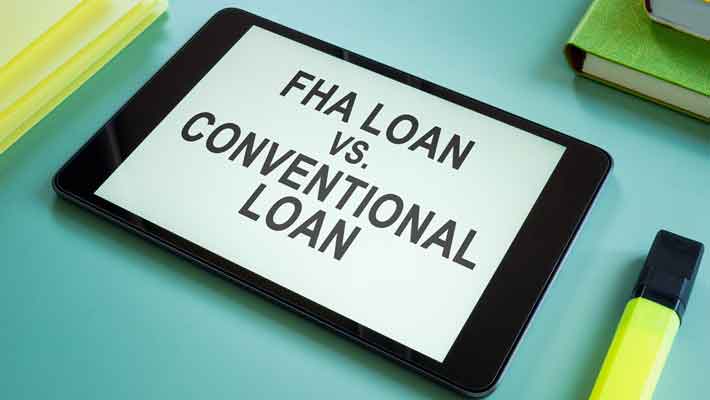FHA loans and conventional loans are two of the most common mortgages that home-purchasers would typically obtain. Given that a home is one of the most important and largest financial purchases that a person would make in their lifetime, it is important to understand the differences between the two types of loans to select a loan which would best fit his or her needs.
Here are some noteworthy features of the two types of loans:
FHA Loan
An FHA loan is a home loan which is insured by the Federal Housing Administration. FHA loans are generally more accessible and have more relaxed qualification requirements compared to conventional loans. This would be a good option, particularly for first-time buyers, as it allows them to easily qualify for a mortgage.
FHA loans generally have lower credit score requirements, which can go as low as 500. FHA loans also typically have lower down payment amounts, which can be as little as 3.5% of the home’s purchase price. But, it is important to note that the down payment amounts vary depending on the borrower’s credit score.
However, a downside to FHA loans is that borrowers must pay mandatory mortgage insurance premiums (MIPs). The borrower would have to pay both an upfront MIP and an annual MIP, which would add to the overall cost of the loan. FHA loans also have restrictive limits on the amount which one could borrow.
Conventional Loan
Unlike an FHA loan, a conventional loan is not insured or guaranteed by any government agency. Conventional loans present more risk for lenders as the loans are not insured by the federal government. Hence, conventional loans generally have a stricter credit score and income requirements compared to FHA loans.
Conventional loans also often require a higher down payment, ranging from 3% to 20%, depending on the borrower’s creditworthiness and the mortgage product. Borrowers must also usually have a minimum credit score of 620 in order to qualify for a conventional loan.
The good news is that for conventional loans, there is usually flexibility on loan terms, including fixed-rate and adjustable-rate mortgages, and borrowers would not need to pay for private mortgage insurance if they can make a down payment of 20% or more. Also, borrowers with conventional loans need not pay any upfront mortgage insurance premiums.
Which Loan Should I Get?
Choosing between FHA and conventional loans depends on an individual’s specific financial situation and goals. For instance, if a borrower has a lower credit score, or he or she prefers to pay a smaller down payment, FHA loans may be the preferable option. But if a borrower would like to have more flexible repayment terms, he or she may find that a conventional loan would better suit their needs.
When deciding between the two types of loans, one should consider factors such as credit score and down payment amounts, and to compare interest rates and terms to determine which loan type aligns better with the borrower’s financial situation and goals.




